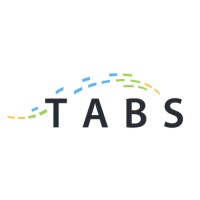Education
Written by
Please note the content is for informational purposes only and not to be relied on

Consequences of Payrolling in the US with a Foreign Entity
Foreign entities entering the U.S. market must carefully consider hiring U.S. employees. While some may attempt to payroll themselves or use a Professional Employer Organization (PEO) to simplify the process, these options come with significant risks.
When a foreign entity wishes to enter the U.S. market, a major factor they may need to consider involves hiring U.S. employees. This may seem like a daunting and overwhelming prospect, and in an effort to ‘simplify’ the matter and ‘reduce costs,’ some foreign entities may decide to payroll themselves directly (i.e., using the foreign entity as the employer) or contract with and use a professional employer organization (a “PEO”). In fact, some global PEOs are marketing heavily and offering services at what may appear to be ‘too good to be true’ rates. Beware as they may just be!
Here are some things to consider when reviewing whether to employ via a foreign entity and/or use a global PEO.
Risks of Foreign Entity – Permanent Establishment
Using a PEO, or employing directly in the United States, may put your foreign entity at risk. Under U.S. laws, a PEO acts as a co-employer with the entity that has contracted with the PEO. Although the PEO may take care of the administration of the payroll and benefits for the employee(s), the employee is under the day-to-day control of the foreign entity. As a result of the co-employment in the United States, even when using a PEO, the foreign entity will likely be deemed to be employing and doing business in the United States. This potentially subjects the foreign entity to the laws and tax regulations of the United States.
As a result of the co-employment in the United States, the foreign entity will likely be considered to have created a ‘permanent establishment’ in the United States. ‘Permanent Establishment’ is an important international tax concept. Under most tax treaties, creating a Permanent Establishment will subject the foreign entity to federal, state, and local taxation in the United States.
Something else to consider is that the assets of the foreign entity may now be ‘at risk’ in the event that litigation were to ensue under U.S. laws. It may be much more difficult to argue that your foreign entity is not subject to the laws and jurisdictions of the local, state, and federal laws in the United States if a Permanent Establishment is created.
Avoiding the Risks
You can avoid the risks associated with Permanent Establishment of your foreign entity by creating and employing (or contracting with a PEO) via a U.S. subsidiary. If properly created and maintained, only the subsidiary’s assets will be at risk, and only its income will be subject to federal, state, and local taxes.
Generally speaking, many PEOs provide a very limited suite of services – i.e., payroll and benefit administration. They do not typically provide assistance with federal, state, and local tax filings, sales tax registrations and returns, filing for authority to transact business in applicable jurisdictions, filing of annual company reports, and other governance-related matters. In fact, PEOs may not even provide assistance with HR-related matters specific to your company.
While hiring U.S. employees is a crucial step for foreign entities entering the U.S. market, doing so without proper structuring can expose the business to significant risks, including taxation and legal liabilities. Relying on a PEO or directly employing workers through the foreign entity may inadvertently create a permanent establishment, subjecting the company to U.S. tax laws and placing its assets at risk.
Please note the content is for informational purposes only and not to be relied on
